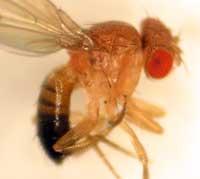The sleep and metabolism of food

Children under the age of five who sleep less than ten hours a night may have a higher propensity to be overweight or obese within a few years. It is the affirmation of two researchers from the Universities of California and Washington. The journal Archives of Pediatrics Gaztetxent Medicine has released the news.
The research is based on a survey conducted in 1997 and 2002, in which 1,930 children participated, after which the data collected in the two years were compared. Well, the tendency to obesity problems was 80% higher among those who did not sleep long enough at night five years earlier. Children were younger than four years old when they started participating in the research.
However, in the results of children aged 5 to 13 years, the relationship between lack of sleep and subsequent obesity was not observed.
Researchers say that the nap cannot replace the night sleep. Nap can help eliminate stress or be careful to learn. The night sleep includes the biological, psychological and recovery functions.”

The U.S. National Dream Foundation. has given detailed sleep advice: the youngest (from 1 to 3 years) should sleep between 12 and 14 hours each night; those from 3 to 5 between 11 and 13 hours; for those from 5 to 10 years, the recommendation is 10-11 hours; and for adolescents, between 8.5 and 9.25 hours.
According to researchers, this is the first study to suggest that children's lack of sleep can lead to obesity. But they still do not have the explanation very clear and will continue investigating. “For some experts, the longer you are awake, the more a child will eat. Another theory says that children who have little rest are too tired to practice sports or physical activity with desire.”
Vinegar flies
Another study of sleep comes from the University of Washington. Like large meals cause drowsiness, they have found that “being hungry makes the need for sleep to a second level” and that “it can reduce the cognitive damage associated with lack of rest”.
The experiment has been carried out with vinegar flies that cannot live without sleeping. But, in the laboratory, they caused a mutation in the flies so that not sleeping would cause even more damage. These flies accumulated the damage caused by the lack of sleep much faster and it was enough to be awake for ten hours to kill it.
Among those who genetically transformed with the aforementioned mutation, flies that did not eat survived the path for longer. 28 hours.

The research work has been carried out with vinaigrette flies Drosophila melanogaster of frequent use for the realization of genetic tests. (Photo: Chromalux).
The researchers used two markers related to lack of sleep: an enzyme of flies in saliva and their ability to learn how to relate light to a stimulus that they did not like. In both tests they saw that the flies hungry did not sleep.
“From an evolutionary perspective it makes sense,” says one of the researchers. Hungry, you want to cognitively ensure that you are at your highest level. In this way, you will increase your chances of finding food instead of becoming someone else’s food.”
Published in 7K.
Buletina
Bidali zure helbide elektronikoa eta jaso asteroko buletina zure sarrera-ontzian








